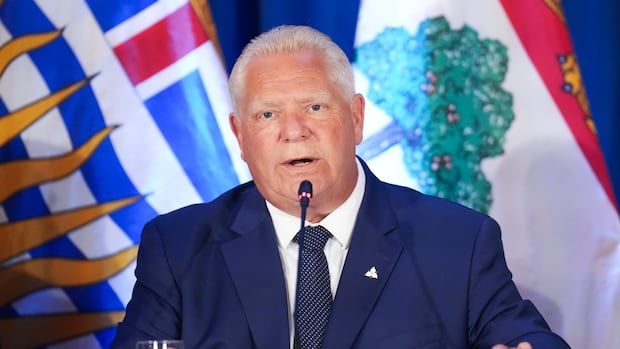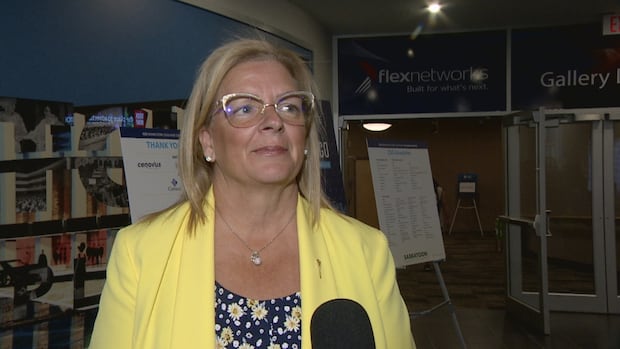Former U.S. secretary of state Mike Pompeo delivered a reassuring, fence-mending message on Wednesday, saying Canadians ought to trust the United States and shouldn’t feel as though their sovereignty is under threat.
He told an international gathering of defence contractors in Ottawa that he’s confident relations between the two countries remain strong and that they will endure beyond the current tensions, which are fuelled by President Donald Trump’s talk of annexation and the ongoing trade war.
When asked if Canadians should feel threatened by the rhetoric, Pompeo, who served in Trump’s first administration, said: “No.”
He added that he’s confident the Canadian government will do all that’s necessary to ensure the country’s continued sovereignty.
“The answer is that Canadians ought to trust the United States in the same way Americans ought to trust [Canadians] to be able to survive. I’m convinced, in the sweep of history, that will remain,” said Pompeo.
His soothing tone stands in contrast to his former boss, who has repeatedly spoken about how he’d like to see Canada become the “cherished 51st state” in the American union — a notion that has awakened a sense of Canadian patriotism which was on full display Wednesday at the annual defence trade show.
“We were complacent, but we’ve woken up,” said Christyn Cianfarani, president of the Canadian Association of Defence and Security Industries in her opening address of the event organized by her association.
“We recognized that the defence of North America is a shared responsibility. But make no mistake, Canada will govern itself.”
Pompeo spoke to reporters following his lunchtime remarks at the CANSEC defence industry convention, which featured — as usual — a number of large U.S.-based defence contractors.
Prime Minister Mark Carney has made it clear that Canada intends to invest more in defence, and that he sees an overreliance on American weapons and munitions makers. He said the federal government is hoping to join the European Union’s $1.25-trillion rearmament plan — pivoting Canada away from U.S. contractors.
Pompeo said Carney is simply standing up for his country.
“That’s his job, and that’s what the people hired him to do,” Pompeo said. “He should make good decisions.”
One of the counterarguments to Canada buying its sophisticated military equipment elsewhere is that the United States is a world leader in technology and industrial innovation — something Pompeo said the prime minister should take into account.
“American human capital, American business, it is a very attractive proposition for Canadian defence,” he said.
On Tuesday, Trump took to social media to say that Canada has been told that joining his administration’s so-called Golden Dome missile defence plan would cost the country about $61 billion US, but the cost would be “zero” if the country chose to join the United States. Trump wrote that Canada was considering it — a claim the Prime Minister’s Office flatly denied.
Heading into his first question period Wednesday, Prime Minister Mark Carney was asked by a reporter if he was considering an ‘offer’ by the U.S. president for Canada to spend $61 billion US on a new missile defence system. Carney said ‘it’s not an offer’ as he walked past.
Carney, on Wednesday, said he wasn’t going to negotiate in public and Defence Minister David McGuinty said Ottawa will continue “to do what’s right for Canadians and that includes making sure that we are secure, that we are sovereign.”
Pompeo said he wasn’t in a position to evaluate whether the $61-billion figure was accurate. But conducting missile defence over territory as vast as North America would be expensive, he said.
“It’s an engineering problem. It is a physics problem, a technical problem and it is a deeply expensive challenge as well. But I think that that is one that is worth the investment,” the former secretary of state said. “So, my guess is that the $61 billion number is low.”








